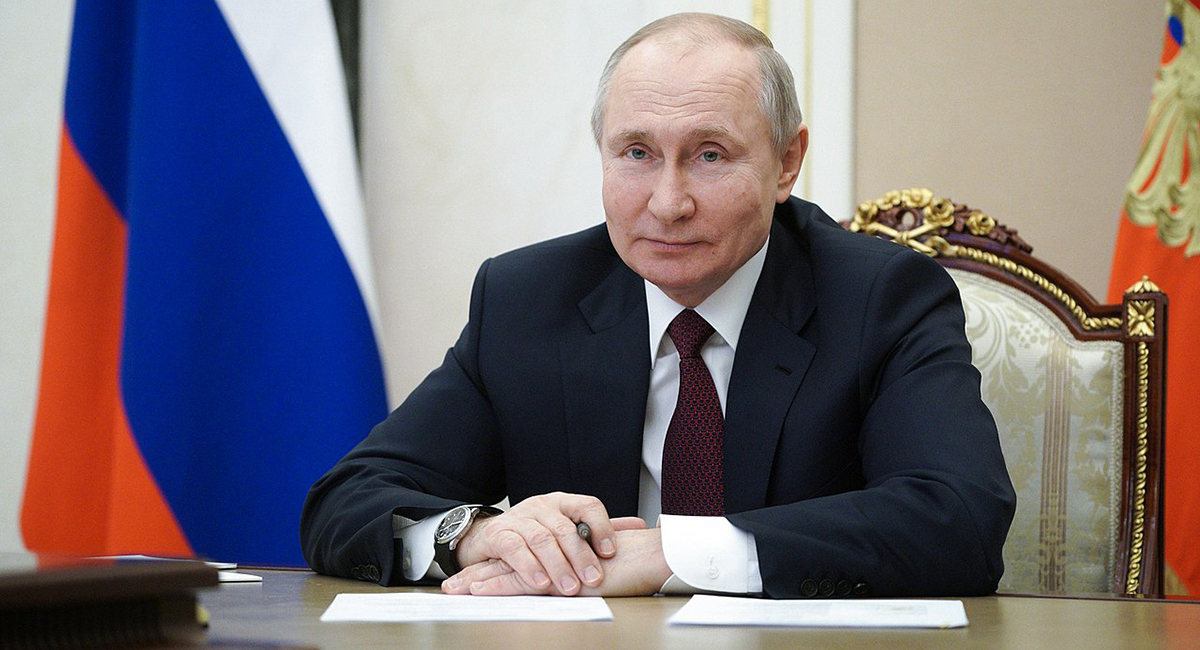For all his caginess, dissimulation, and opportunism, Vladimir Putin is more or less predictable.
Putin’s aims? The Russian president’s two-decade dilemma has been how to reclaim the prestige and power of the former Soviet Union—but with only 75 percent of his country’s former territory and 140 million fewer people.
When does he strike?
First, Putin moves on neighboring former Soviet republics when the world price of oil is high, and his coffers are full. So he went into Georgia in 2008 and into Eastern Ukraine and Crimea in 2014 when he thought he had the financial wherewithal and public support to do so.
But when the world is awash in oil, prices dip, and the United States reigns as the largest gas and oil producer, he hesitates. So he remained static between 2017 and 2020.
Second, when the United States increases the defense budget and deters its enemies, Putin also pauses. In contrast, when America “resets” or appeases, he is emboldened.
In 2008, the United States was battered by sky-high oil prices and bogged down in Iraq and Afghanistan. Then between 2009 and 2016, President Obama went on an apology tour, cut defense spending, boasted of a new “Russian reset,” contextualized Iranian and North Korean aggression, and begged Putin to behave until Obama was reelected in 2012—in exchange for dismantling U.S. missile defense programs in Eastern Europe. Obama then invited Russia into the Middle East after a 40-year absence.
As a result, during all those years Putin formally invaded Georgia, Eastern Ukraine, and Crimea. But between 2017 and 2020, Putin was quieter.
In 2018, the Trump Administration killed attacking Russian mercenaries in Syria. It got out of an unfavorable missile deal with Russia in 2019. It sold offensive weapons to Ukraine. It maintained sanctions on Russian oligarchs. And it greatly increased defense spending.
No surprise that Putin then did not threaten his neighbors with military mobilizations on their borders.
Third, when NATO is in disarray, Putin also turns aggressive.
The United States and NATO began bickering over Iraq and Afghanistan between 2006 and 2008. By 2009-2010, the Obama Administration was complaining that NATO members were “free riders” for not meeting their promised 2 percent annual budget investments in military readiness.
Germany and Turkey became more belligerent and more anti-American.
In contrast, by 2020, an unpopular and tough-talking Trump had nevertheless jawboned a petulant alliance into investing an aggregate $100 billion more in defense. More countries met their promised defense spending goals.
Trump had sanctioned the Putin-Merkel Nord Stream 2 pipeline project that would bind Germany to fickle Russian energy deliveries.
Again, Putin stayed mostly still.
Fourth, when a U.S. president talks trash and yet proves anemic, Putin loses his cool at such empty bombast and turns aggressive.
Obama repeatedly ridiculed Putin with putdowns of the Russian country and people: “Their economy doesn’t produce anything that anybody wants to buy, except oil and gas and arms. They don’t innovate.”
Yet Obama was afraid even to sell defensive weapons to Ukraine to combat Russian aggression and had implored Putin to give him “space.”
Similarly, Joe Biden constantly attacks Putin in personal terms, labeling him a “bully” and “killer.” Yet when Putin brazenly allowed Russian-affiliated hackers to attack U.S. companies and agencies, Biden urged Putin to please ask the hackers at least to make 16 critical American “entities” off-limits.
When Biden slashed U.S. oil and gas production, prices skyrocketed. Biden then begged the “killer” to please pump more of his “dirty” fuel to help American commuters.
In contrast, Trump expressed guarded willingness to work with Putin, especially in realist terms of triangulating to check Chinese aggression.
But such diplomatic and measured talk was juxtaposed with tough deterrence. Putin never knew quite what Trump might do in any given crisis, other than that it would be unpredictable, in U.S. interests, and possibly deadly.
Again, the result was that Putin did not mobilize for invasion between 2017 and 2020 as he is doing now—and did prior to 2017.
What do we learn about Putin’s opportunistic foreign policy?
Pumping lots of oil and lowering the world price of it makes Putin worry about insolvency rather than invasion and ensure the West is less dependent on him.
When the United States appeases Putin and is wracked by internal dissension and social turmoil, Putin pounces.
Prod NATO to bolster their defenses and Germany to stop enriching Putin—and then Russia is circumspect rather than recklessly aggressive.
Speaking softly while carrying a club rather than loudly with a twig better persuades Putin not to try something dangerous.
To the degree America embraces all four of the strategies above, Putin will likely not attack anyone.
If we at least embrace one or two of the above protocols, he may still stay put.
But if we ignore all of these time-proven antidotes, then we can almost guarantee that Putin will either mobilize against or actually invade a former Soviet republic.
Biden has managed to violate all four principles. Is it then any surprise that a predictably opportunistic dictator has massed hundreds of thousands of troops on Ukraine’s borders?








